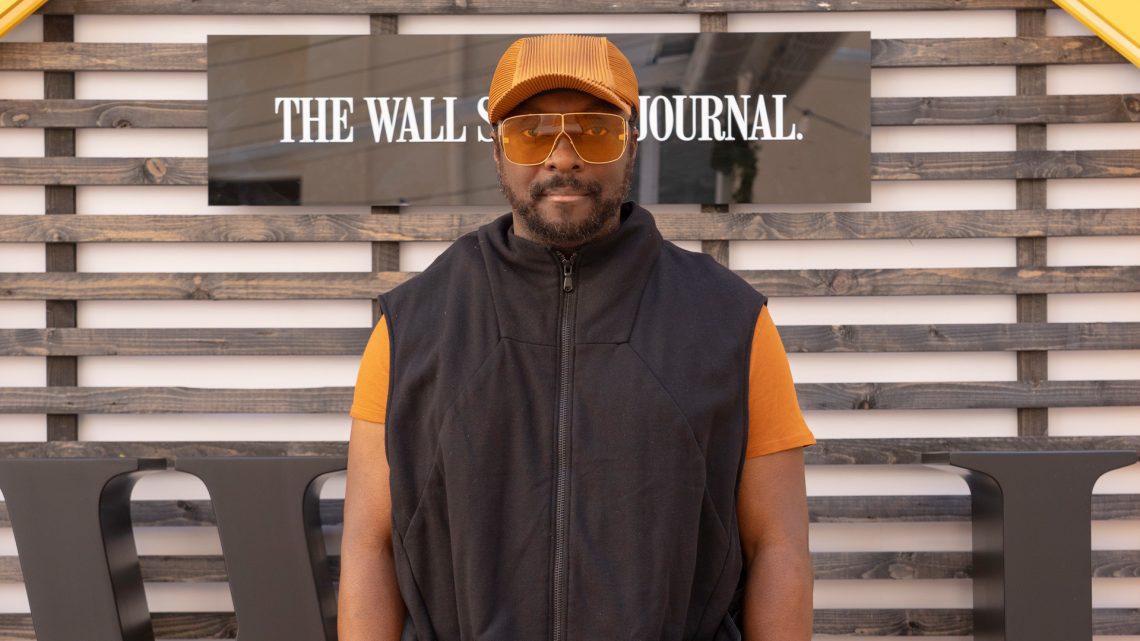Will.i.am believes diversified voices will be necessary for artificial intelligence (AI) innovation.
While in conversation with The Wall Street Journal’s Kim Last at Journal House during The Cannes Lions International Festival of Creativity, the artist unveiled an AI-generated Black woman host named Felicia from his SiriusXM show. As AFROTECH™ previously reported, the show spotlights AI innovation at the crossroads of pop culture, music, entertainment, world news, and technology.
“Now, when we talk about AI, it’s crucial that we dive into the real deal. Representation, empowerment, and breaking those barriers in tech. Because let’s face it, you ain’t going to see much of our faces if we don’t get involved and steer that ship,” Felicia told the audience. “AI is more than just cool tech. It’s like a new frontier where we got to make sure every voice is heard. We’re here to make it clear that AI needs to reflect the diverse, rich tapestry of all our communities, especially ours. It’s about fighting biases, creating equal opportunities, and bringing that unique flair right into the heart of innovation. So, like Will.i.am said, ain’t nobody talking about AI without talking about us. We’re here to make sure the future is inclusive and vibrant, just like the communities we come from.”
Felicia’s presence signals an important lesson in society’s past and present and a potential implication for its future. Will.i.am voiced concerns about perpetuating a narrow interpretation of voices with accents through technology.
For example, a research study conducted by Department of Linguistics associate professors Anne Pycha (University of Wisconsin, Milwaukee) and Georgia Zellou (University of California, Davis) revealed that native American-English speakers found information from British-accented voices more credible than information from American-accented voices. Additionally, the study indicated that the frequency of interaction with a voice assistant had a significant effect on its perceived trustworthiness.

Will.i.am called out major players like Disney, Microsoft, and Google for perpetuating biases and doubled down on the necessity for more inclusive representation in AI technology development.
“Disney does a really good job telling us that intelligence is British, and that’s great because we speak English… When it comes to storytelling, there could be a story about France. For some reason, in the movie, even Napoleon… sounds English,” Will.i.am explained at The Cannes Lions Festival. “There could be a story about Aladdin in the Middle East, and to make him sound magical, he sounds British. The British did an amazing job making us believe that intelligence and higher knowledge is supposed to sound like this. When it comes to AI, you’re gonna have super corporate librarians. And so that when people aren’t going to engage with those agents that come from communities that I come from, now they have to change how they speak. AI is now going to sound, once again, like a different colonial interpretation, that intelligence does not sound like someone from the Bronx (NY) or sound like somebody from Atlanta (GA) and think like someone from the favelas in Rio de Janeiro (Brazil) or Columbia or Puerto Rico or Dominican Republic. Why can’t they sound and vibe and understand our trials and tribulations? And who is going to program that data? Who’s programming it to make sure that it understands us?”
He added, “It was super important that we built Felicia from that perspective because who’s supposed to build that? Microsoft’s supposed to build that? Google’s supposed to build that? They’re supposed to come in and take all of our way that we speak and then now that, like, nah, that shouldn’t be that way. We should do that. If intelligence is intelligence, it should come from our communities, and our communities need to be represented in that space.”
Will.i.am announced additional plans for his vision of AI progression. In the music world, he explains his focus is not on working with artists, but rather making them. He dreams of working with leading AI programmers to create music for an AI-generated artist.
“I’m still creating. I’m just creating differently…,” he said. “This means that tomorrow’s world builders are going to have visions like they also have, and they are going to materialize them with these tools.”
To learn more about WSJ’s Journal House, go to https://journalhouse.com/





